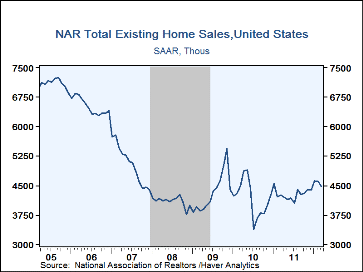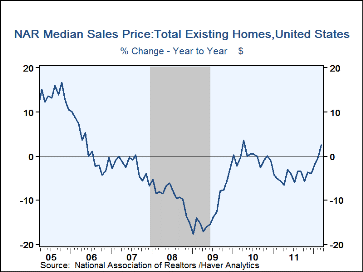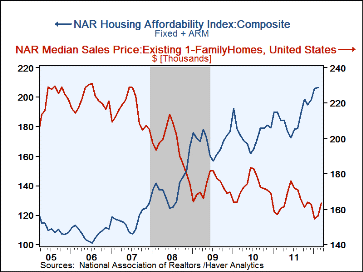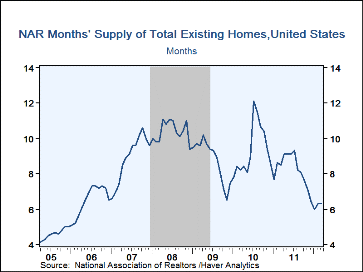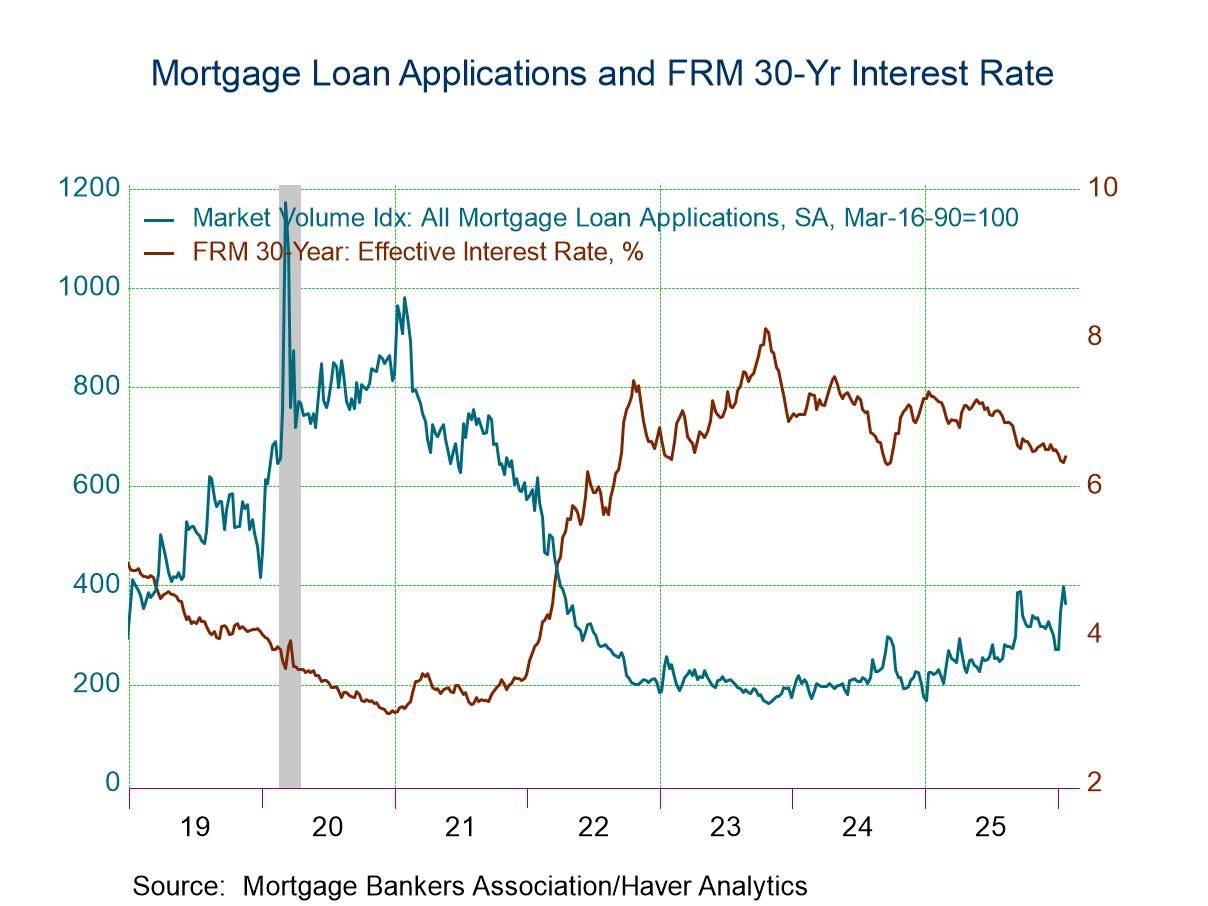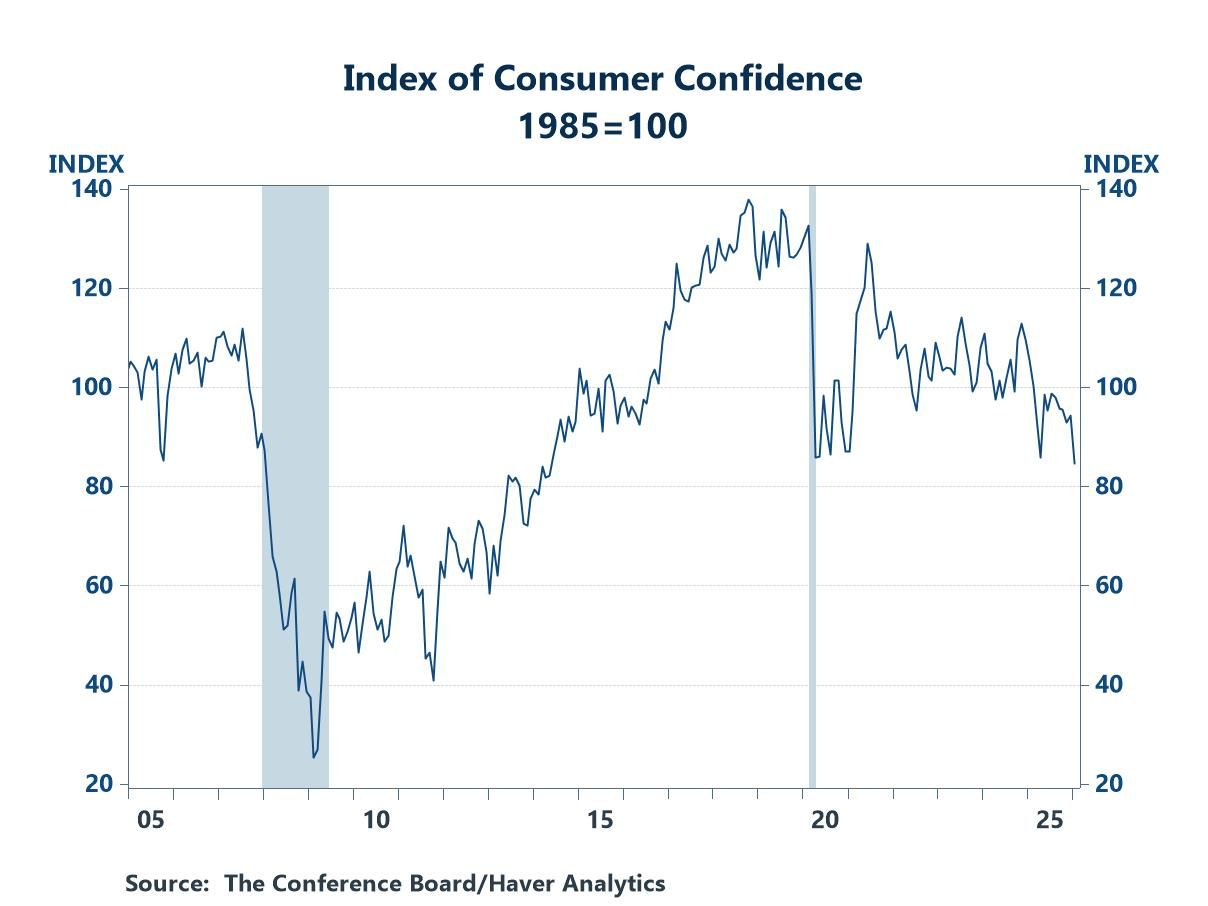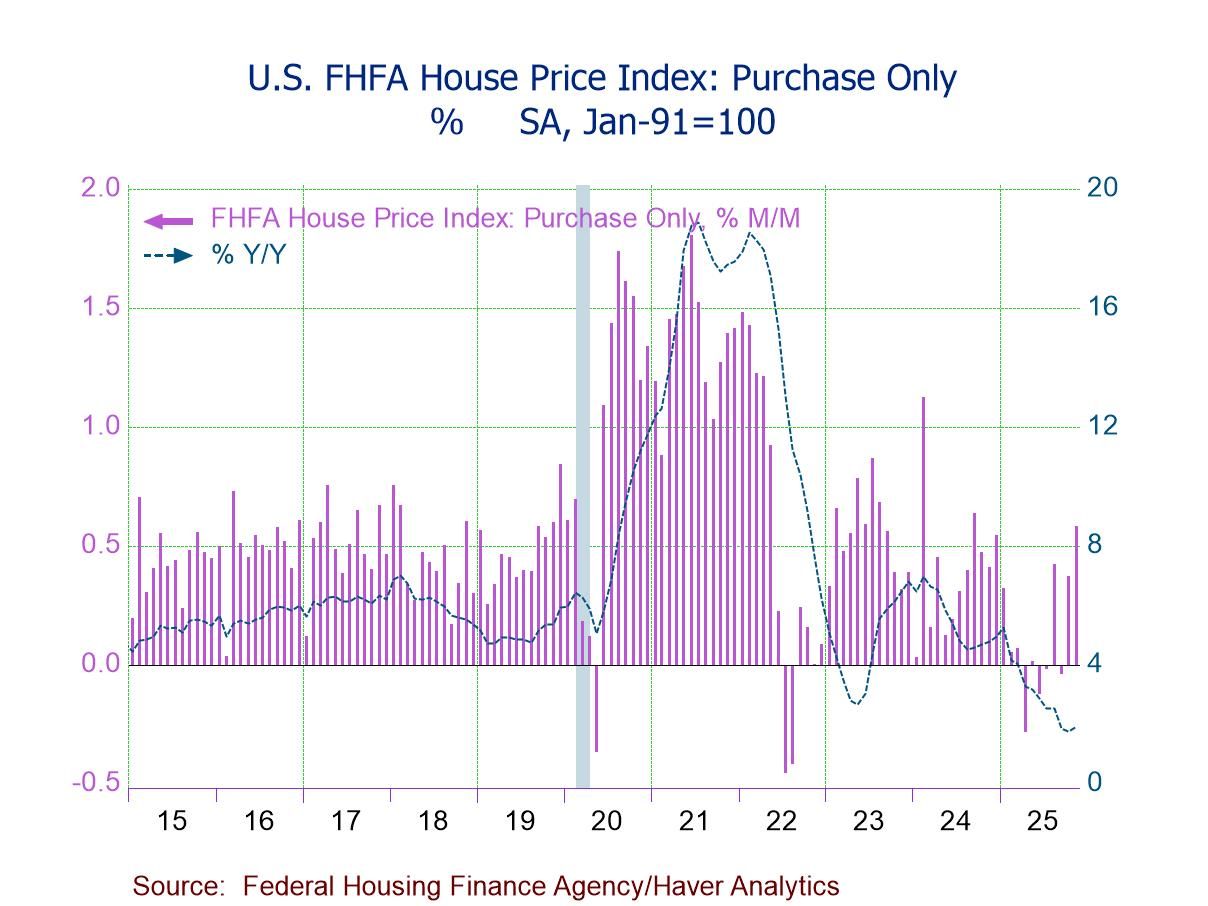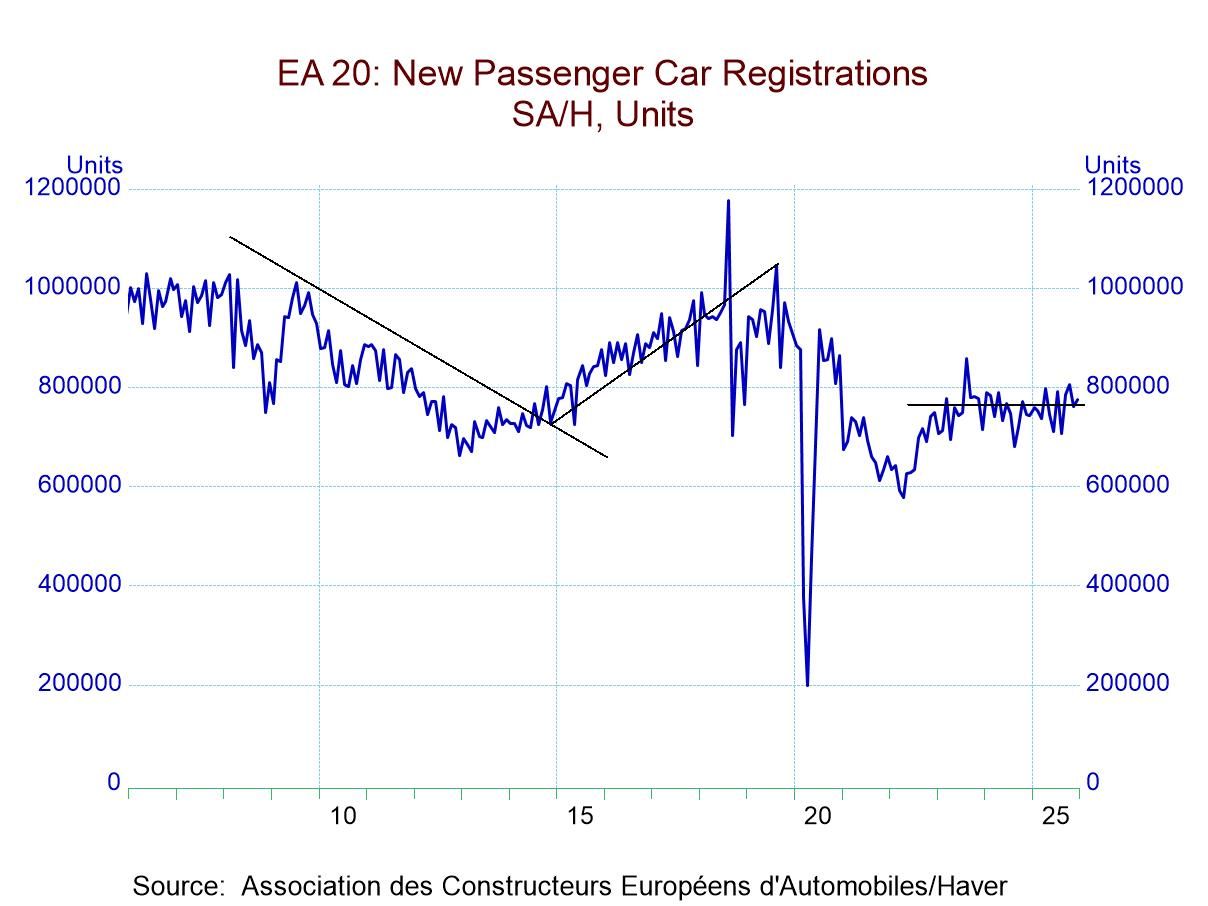 Global| Apr 19 2012
Global| Apr 19 2012U.S. Existing Home Sales Fall
by:Tom Moeller
|in:Economy in Brief
Summary
Sales of existing homes fell 2.6% last month to a 4.480 annual rate (+5.2% y/y) from a revised 4.600M during February, last month reported as 4.590M. Despite the decline, sales remained near the highest since May 2010. Sales of [...]
Sales of existing homes fell 2.6% last month to a 4.480 annual rate (+5.2% y/y) from a revised 4.600M during February, last month reported as 4.590M. Despite the decline, sales remained near the highest since May 2010. Sales of existing single-family homes alone fell 2.5% last month to 3.970M, up 5.9% y/y. (These data have a longer history than the total sales series). Sales of condos and co-ops declined 3.8% m/m to 0.510M and were unchanged y/y.
The median price of an existing home rose 5.3% (2.5% y/y) to $163,800. In the Northeast, the median sales price of $228,300 was down 1.9% y/y. In the West, the median price rose 2.5% y/y to $198,300. In the South, the price of $146,500 was up 6.2% y/y and in the Midwest the price of $132,800 rose 5.2% y/y.
The months' supply of homes on the market was stable at 6.3 and that was near the lowest since March, 2006. The months' supply of single-family homes on the market ticked up to 6.3 and for condos & coops it slipped to 7.1. The total number of homes on the market fell m/m and was down 21.8% y/y to the lowest since 2005. Inventories of single-family homes fell 20.1% y/y while inventories of multi-family homes were off nearly one-third.
Reported earlier this month, the composite index of home price affordability rose 8.9% y/y in February to another record high as mortgage payments as a percent of income held at 12.1% versus the high of roughly 25% in 2006. The average monthly mortgage rate slipped to 4.21%.
The data on existing home sales, prices and affordability can be found in Haver's USECON database. The regional price, affordability and inventory data are available in the REALTOR database. The expectations figure is in the AS1REPNA database.
| Existing Home Sales (Thous, SAAR) | Mar | Feb | Jan | Y/Y% | 2011 | 2010 | 2009 |
|---|---|---|---|---|---|---|---|
| Total | 4,480 | 4,600 | 4,630 | 5.2 | 4,283 | 4,181 | 4,329 |
| Northeast | 580 | 590 | 600 | 5.5 | 544 | 563 | 580 |
| Midwest | 1,020 | 1,020 | 1,010 | 15.9 | 920 | 908 | 975 |
| South | 1,750 | 1,770 | 1,760 | 3.6 | 1,685 | 1,626 | 1,640 |
| West | 1,130 | 1,220 | 1,260 | -0.9 | 1,133 | 1,083 | 1,134 |
| Single-Family Sales | 3,970 | 4,060 | 4,100 | 9.4 | 3,797 | 3,704 | 3,868 |
| Median Price, Total, ($, NSA) | 163,800 | 156,600 | 154,600 | 0.3 | 164,542 | 172,442 | 172,783 |
Tom Moeller
AuthorMore in Author Profile »Prior to joining Haver Analytics in 2000, Mr. Moeller worked as the Economist at Chancellor Capital Management from 1985 to 1999. There, he developed comprehensive economic forecasts and interpreted economic data for equity and fixed income portfolio managers. Also at Chancellor, Mr. Moeller worked as an equity analyst and was responsible for researching and rating companies in the economically sensitive automobile and housing industries for investment in Chancellor’s equity portfolio. Prior to joining Chancellor, Mr. Moeller was an Economist at Citibank from 1979 to 1984. He also analyzed pricing behavior in the metals industry for the Council on Wage and Price Stability in Washington, D.C. In 1999, Mr. Moeller received the award for most accurate forecast from the Forecasters' Club of New York. From 1990 to 1992 he was President of the New York Association for Business Economists. Mr. Moeller earned an M.B.A. in Finance from Fordham University, where he graduated in 1987. He holds a Bachelor of Arts in Economics from George Washington University.


